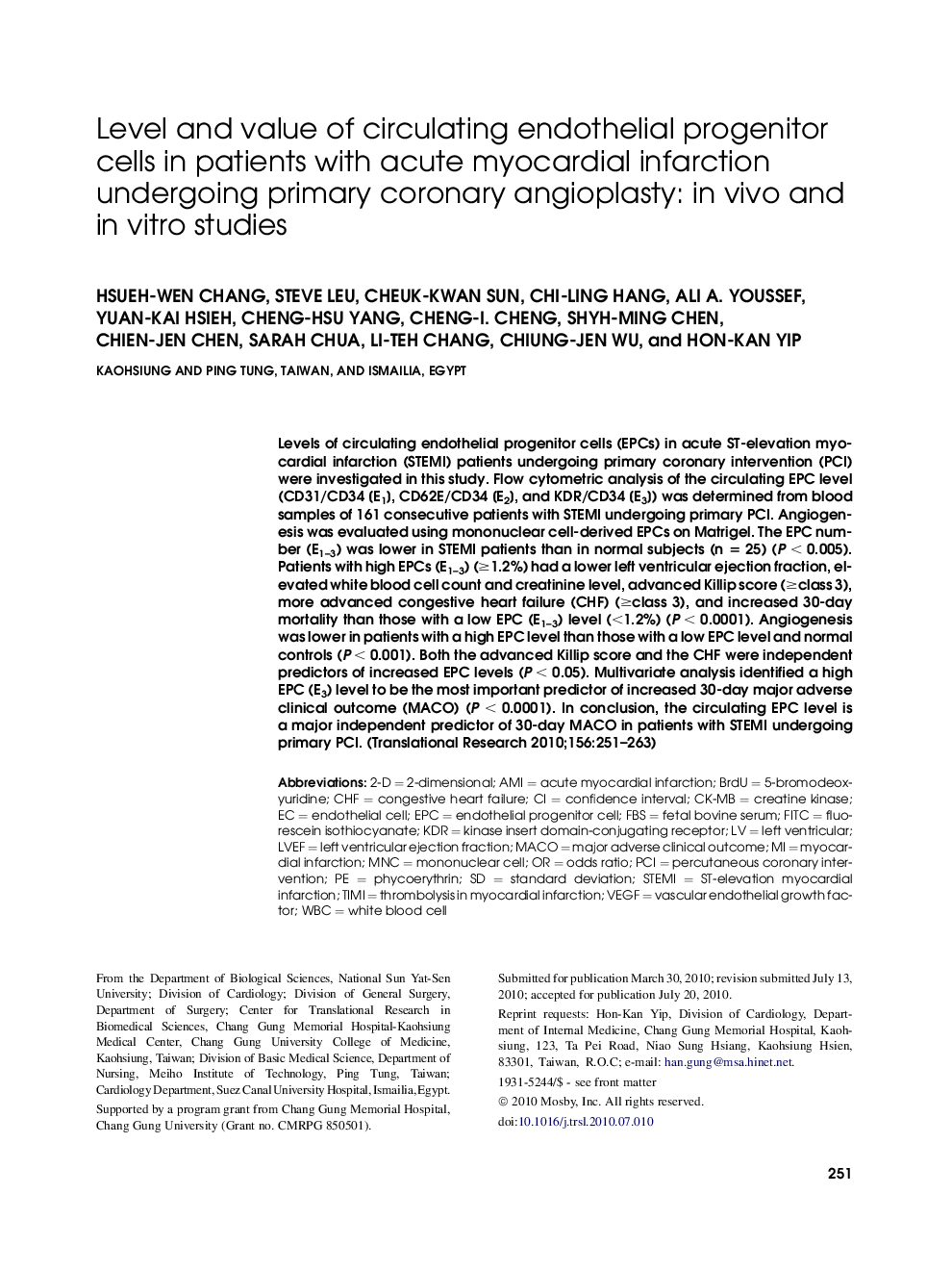| Article ID | Journal | Published Year | Pages | File Type |
|---|---|---|---|---|
| 3840928 | Translational Research | 2010 | 13 Pages |
Levels of circulating endothelial progenitor cells (EPCs) in acute ST-elevation myocardial infarction (STEMI) patients undergoing primary coronary intervention (PCI) were investigated in this study. Flow cytometric analysis of the circulating EPC level (CD31/CD34 [E1], CD62E/CD34 [E2], and KDR/CD34 [E3]) was determined from blood samples of 161 consecutive patients with STEMI undergoing primary PCI. Angiogenesis was evaluated using mononuclear cell-derived EPCs on Matrigel. The EPC number (E1–3) was lower in STEMI patients than in normal subjects (n = 25) (P < 0.005). Patients with high EPCs (E1–3) (≥1.2%) had a lower left ventricular ejection fraction, elevated white blood cell count and creatinine level, advanced Killip score (≥class 3), more advanced congestive heart failure (CHF) (≥class 3), and increased 30-day mortality than those with a low EPC (E1–3) level (<1.2%) (P < 0.0001). Angiogenesis was lower in patients with a high EPC level than those with a low EPC level and normal controls (P < 0.001). Both the advanced Killip score and the CHF were independent predictors of increased EPC levels (P < 0.05). Multivariate analysis identified a high EPC (E3) level to be the most important predictor of increased 30-day major adverse clinical outcome (MACO) (P < 0.0001). In conclusion, the circulating EPC level is a major independent predictor of 30-day MACO in patients with STEMI undergoing primary PCI.
